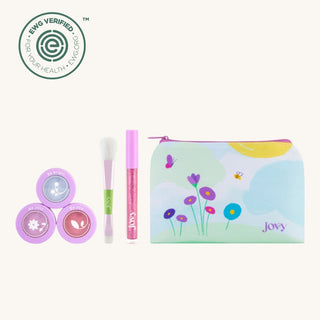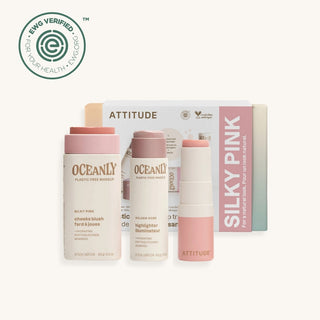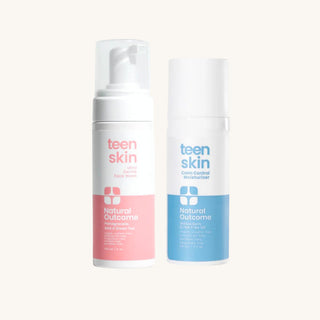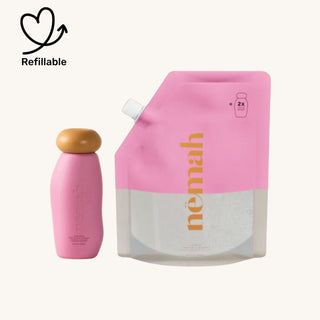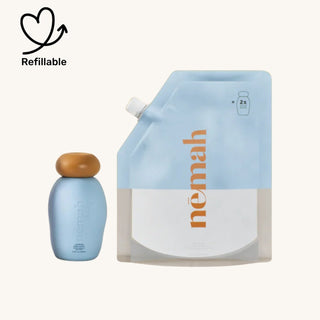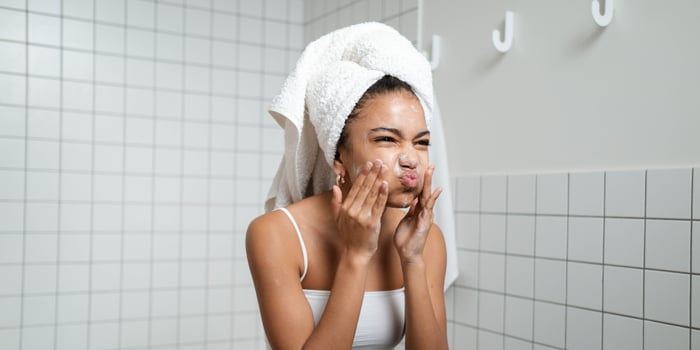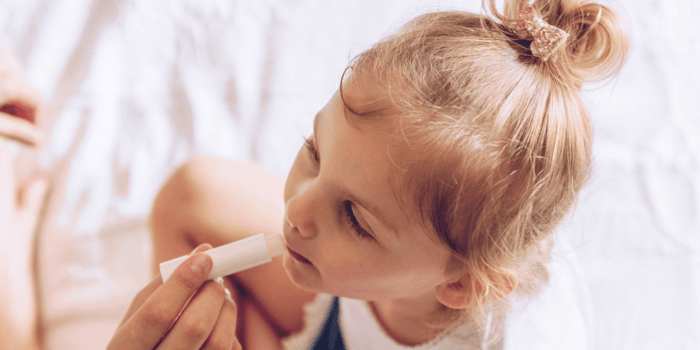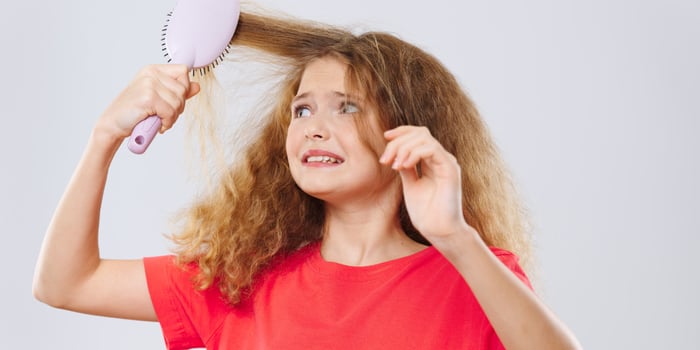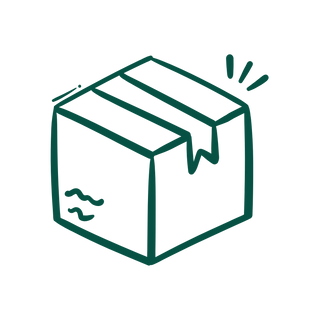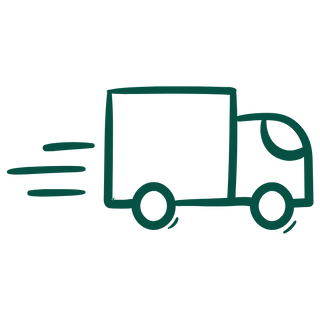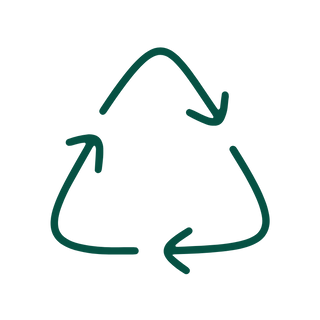Table of Contents
- Introduction
- Why Kids Need a Different Formula Than Adults
- So, What’s the Difference Between Face Wash and Face Cleanser?
- Problematic “Clean” Kids’ Products to Watch Out For
- Bonus: Complete List of Ingredients to Avoid in a Children’s Face Cleanser or Face Wash
- Recommended Safe Alternatives
- How to Introduce a Face Care Routine at Different Ages
- Raising Healthy Habits That Last
- FAQs
Introduction
Choosing the right product for cleaning your child’s face can feel confusing, especially with the sheer number of options on store shelves. From foaming gels to creamy cleansers, parents are left wondering which childrens face washers are actually safe and effective. The good news is that understanding how kids’ skin works — and what it really needs — makes the decision far less overwhelming.
While the term "skincare" might bring to mind complicated routines, for kids it starts with one simple habit: washing the face. A children's face cleanser or the best face wash for kids isn’t about keeping up with beauty trends or buying “Sephora kids” products — it’s about supporting skin health by removing dirt, oil, and impurities gently and safely.
This guide will walk you through the unique benefits of childrens face washers, breaking down the difference between a face wash and a cleanser, highlighting ingredients to avoid, and even calling out so-called “clean” brands that aren’t as safe as they seem. By the end, you’ll know how to confidently choose the best face wash for kids and when a children's face cleanser might be the smarter option for your child’s daily routine.
Why Kids Need a Different Formula Than Adults
Choosing the best face wash for kids isn’t as simple as buying a smaller version of an adult product. Children’s skin has a thinner stratum corneum (the outermost layer of the epidermis) and a more delicate skin barrier compared to adults, which makes it more permeable to chemicals. Research published in the Journal of the European Academy of Dermatology and Venereology (2019) shows that this increased permeability allows ingredients absorbed through the skin to enter the bloodstream more quickly in children, raising the stakes for ingredient safety in childrens face washers.
Because of this, harsh surfactants, sulfates, and synthetic fragrances—common in adult cleansers—can cause irritation, redness, or dryness much faster in younger skin. A true children's face cleanser should remove dirt and impurities while preserving hydration and protecting the skin barrier. This makes a carefully formulated product safer than “all-in-one” washes that claim to be gentle but often still contain problem ingredients.
For parents, the safest strategy is to choose products specifically labeled as a children's face cleanser or childrens face washers and then double-check the ingredients for transparency. A cream-based cleanser or gentle foaming gel can work well, but only when it’s free from parabens, sulfates, and dyes. These safer formulations provide effective cleansing while protecting natural oils essential for balanced skin.
By making the best face wash for kids a consistent part of daily care, parents lay the foundation for lifelong healthy habits. This ensures skin is cared for with products that are safe, age-appropriate, and rooted in science rather than marketing claims.
So, What’s the Difference Between Face Wash and Face Cleanser?
The terms “face wash” and “cleanser” are often used interchangeably, but they have distinct differences in both formulation and purpose—especially when it comes to products designed for kids. A face wash is typically more foamy and lathering, using surfactants to create bubbles that deeply cleanse the skin. The best face wash for kids removes dirt, oil, and impurities, making it especially useful for active children or those prone to oily or acne-related breakouts. Childrens face washers in gel, foam, or liquid forms also make the experience fun and refreshing for young users.
By contrast, a children’s face cleanser is generally gentler and can come in cream, lotion, gel, or oil-based formulations. These products often include hydrating ingredients that moisturize while cleansing, which helps preserve the skin’s natural barrier. For kids with sensitive or dry skin, this is particularly important. Cleansers work to clean without stripping essential oils, making them a safer everyday option.
In short, childrens face washers such as foaming gels or liquids are ideal for tweens and more active kids who need deeper cleansing. A children's face cleanser, however, is better suited for daily use on sensitive or dry skin because it prioritizes hydration and balance. Both categories play a role, but choosing between them depends on your child’s unique skin type and needs. By focusing on either a gentle cleanser or the best face wash for kids, parents can build a skincare routine that is both effective and age-appropriate.
Problematic “Clean” Kids’ Products to Watch Out For
Not every product marketed as “gentle” or “clean” is actually the best face wash for kids. Many so-called children’s face cleansers or childrens face washers still contain questionable ingredients that may irritate delicate skin or disrupt the skin barrier. This is why careful label-reading matters.
Take, for example, tbh® Kids Gentle Face Cleanser. While the branding highlights cucumber and calendula extracts, the formula also includes cocamidopropyl betaine, phenoxyethanol, and undisclosed fragrance. Fragrance can hide phthalates, which are linked to hormone disruption, while phenoxyethanol is a preservative flagged by the FDA as potentially irritating for infants. A true children’s face cleanser should avoid these kinds of additives.
Similarly, Lav Kids Facial Foaming Cleanser markets itself as natural but contains sodium lauryl sulfoacetate and sodium lauroyl sarcosinate—both strong surfactants that can be too harsh for children’s sensitive skin. When childrens face washers rely on these detergents, they risk stripping away protective oils and leaving skin dry or inflamed.
Even big-name brands like Aveeno Kids Sensitive Skin Face & Body Wash aren’t immune. Although Aveeno promotes oat extract for soothing benefits, the product still contains cocamidopropyl betaine, fragrance, and acrylates (synthetic polymers). For families seeking the best face wash for kids, these ingredients raise red flags because they can irritate skin or mask hidden chemical risks.
The takeaway? Don’t rely on marketing terms like “gentle,” “clean,” or even “sensitive.” Instead, focus on the ingredient list. A safe children’s face cleanser should be fragrance-free, sulfate-free, and made with nourishing, plant-based ingredients instead of chemical shortcuts. By being label-savvy, you can avoid products that sound wholesome but contain the same problematic ingredients as mainstream adult cleansers.
| Problematic Ingredients Found in Childrens Face Washers | Safer Alternatives for a Children’s Face Cleanser | Why It Matters |
|---|---|---|
| Cocamidopropyl Betaine (found in TBH®, Aveeno, Lav Kids) | Decyl Glucoside or Coco-Glucoside | Gentle, plant-derived surfactants that cleanse without stripping the skin barrier. |
| Phenoxyethanol (preservative in TBH®) | Potassium Sorbate or Sodium Benzoate (low concentration) | Safer preservatives that reduce irritation risk in the best face wash for kids. |
| Fragrance / Parfum (often masks phthalates) | Fragrance-free or naturally scented with chamomile, cucumber, or calendula | Avoids hidden endocrine disruptors and common allergens. |
| Sodium Lauryl Sulfoacetate / Sodium Lauroyl Sarcosinate (Lav Kids) | Aloe vera, oat extract, or shea butter for mild foaming and soothing | Hydrates and calms skin while cleansing. |
| Acrylates & synthetic polymers (Aveeno) | Natural thickeners like xanthan gum or guar gum | Maintain texture without introducing harsh synthetics. |
Bonus: Complete List of Ingredients to Avoid in a Children’s Face Cleanser or Face Wash
Even when labeled “gentle” or “safe,” many conventional products marketed as the best face wash for kids or even as children’s face cleansers still contain harsh or questionable ingredients. This is why parents need to read labels carefully before choosing childrens face washers. Here are some of the most problematic additives:
Sulfates (e.g., Sodium Lauryl Sulfate, Sodium Laureth Sulfate)
Sulfates strip away natural oils, leaving skin dry and irritated—especially risky for kids’ delicate skin barriers.Parabens (e.g., Methylparaben, Propylparaben)
These preservatives are linked to hormone disruption and are best avoided in kids’ skincare.Fragrances
Synthetic fragrance mixes often hide phthalates and can trigger rashes, allergic reactions, or asthma flare-ups.Alcohols (e.g., Ethanol, Isopropyl Alcohol)
Quick-drying alcohols can dehydrate skin, leading to irritation and increased sensitivity.Phthalates
Commonly hidden under “fragrance,” phthalates are endocrine disruptors tied to reproductive and developmental issues.Formaldehyde Releasers (e.g., DMDM Hydantoin, Imidazolidinyl Urea)
These preservatives slowly release formaldehyde, a known carcinogen that can also cause allergic reactions.Artificial Colors (FD&C dyes, Lake pigments)
Artificial colors may look fun but can irritate skin and have even been linked to behavioral issues in children.Mineral Oil
Though technically safe, mineral oil can clog pores, leading to breakouts in young, sensitive skin.Triclosan
Once common in “antibacterial” products, triclosan is linked to irritation and antibiotic resistance concerns.
Recommended Safe Alternatives
Finding the best face wash for kids can feel overwhelming when so many “gentle” products still contain sulfates, parabens, or synthetic fragrances. That’s why it’s important to focus on children’s face cleansers and children’s face washers that are dermatologist-tested, non-toxic, and specifically formulated for young, sensitive skin. Below you’ll find safer alternatives that avoid the harmful ingredients common in mainstream products, offering age-appropriate cleansing while protecting your child’s delicate skin barrier.
To make things simple, we’ve ranked these recommendations by age group—from early childhood through the tween and teen years—so you can confidently choose the right product at the right stage of development. These options prove that a truly non-toxic formula doesn’t have to compromise on performance or fun.
Ages 6–9 (Early Elementary)
Mermaid Micellar™ Cleansing Water
A quick, no-rinse option for young kids. Pineapple, papaya, and marine botanicals cleanse gently while hydrating, making it one of the safest childrens face washers for daily use.
All Natural Micellar Cleansing Water

$31.99
Meet Mermaid Micellar™ — an all natural micellar cleansing water that makes skin care kids routines simple, safe, and fun. This pineapple-powered formula melts away makeup, dirt, and excess oil in one swipe—no rinse needed. Papaya and tropical enzymes gently… read more
Are You Wondering About These Ingredients?
Mermaid Micellar™ includes Polyglyceryl-6 Caprylate, Polyglyceryl-4 Caprate, Polyglyceryl-4 Cocoate, and Polyglyceryl-6 Ricinoleate.
What They Are
All four are plant-derived polyglyceryl esters, which are commonly used as non-ionic surfactants and emulsifiers in natural and non-toxic formulations:
Polyglyceryl-6 Caprylate / Caprate – Coconut- and palm-derived. Mild surfactant with antimicrobial activity that helps solubilize oils and dirt without harsh foaming.
Polyglyceryl-4 Cocoate – Derived from coconut oil. Functions as a gentle cleanser and skin-conditioning agent.
Polyglyceryl-6 Ricinoleate – Castor oil–derived. Helps stabilize micellar solutions and adds emolliency.
Safety Profile
They’re considered safe and non-irritating, even for sensitive skin.
Rated low hazard (1–2) on the EWG Skin Deep Database.
Unlike sulfates or PEG-based surfactants, they don’t strip oils or leave residues requiring harsher cleansers.
Why It Fits Kids
They provide cleansing without the need for sulfates.
They’re biodegradable and often used in certified natural/organic formulations.
They’re mild enough for delicate, thinner pediatric skin barriers.
The only caveat: While generally safe, these are still synthetic derivatives of natural oils, so a patch test is always recommended for very young or sensitive children.
The bottom line: These ingredients are a smart, science-backed alternative to sulfates and harsher synthetic surfactants in a kids’ micellar water.
Ages 8–12 (Tweens)
MEBEME Gentle Gel Cleanser (Normal to Sensitive Skin)
With Emu Apple, Lavender, and Ylang Ylang, this children’s face cleanser calms redness and protects delicate skin. A gentle choice for tweens just starting a skincare routine.
Gentle Gel Cleanser for Kids, Normal to Sensitive Skin

$14.99
Introducing MEBEME’s Gentle Gel Cleanser for Normal to Sensitive Skin—a 100% natural kids face wash designed specifically for tweens and teens. This Australian-made formula deeply cleanses without stripping moisture, leaving young skin refreshed, soothed, and nourished. Enriched with native Emu… read more
MEBEME Balancing Gel Cleanser (Normal to Oily Skin)
Powered by Kangaroo Paw, Lilli Pilli, and Tea Tree, this kids face wash balances oil and clears pores naturally. A strong contender among the best face wash for kids with active, oily skin.
Balancing Gel Cleanser for Kids, Normal to Oily Skin

$14.99
Dive into a refreshing skincare routine with MEBEME’s Balancing Gel Cleanser, a gentle face wash for kids specially formulated for normal to oily skin. This purifying formula is powered by Native Australian extracts and pure essential oils: Kangaroo Paw delivers… read more
Ages 12+ (Teens & Pre-Teens)
Teen Skin Ultra Gentle Foaming Face Wash
Fragrance-free and oil-free, this foaming children’s face cleanser lifts dirt, oil, and pollutants while soothing with aloe and green tea. A safe way for teens to transition into consistent skincare.
Teen Skin Ultra Gentle Foaming Face Wash for Kids

$16.99
The Teen Skin Ultra Gentle Foaming Face Wash is designed specifically for teens and pre-teens, making skincare simple and safe from the start. This fragrance-free, oil-free formula creates a rich, airy foam that lifts away dirt, excess oil, and environmental pollutants… read more
Moon Jelly Gel Cleanser Mask
A dual-use cleanser and mask with probiotics, niacinamide, and seaweed extract. Brightens and refines with hibiscus and tropical fruits, offering a fun yet effective childrens face washer for teens.
Moon Jelly Gel Cleanser Mask

$29.99
Moon Jelly Gel Cleanser Mask is the ultimate face cleanser for teens, bringing the best of the ocean to your daughter’s skincare routine with a formula rich in vitamins, minerals, and nourishing seaweed extract. Probiotics strengthen the skin barrier, niacinamide… read more
How to Introduce a Face Care Routine at Different Ages
Building healthy habits early is just as important as choosing the right products. A simple, age-appropriate skincare routine not only protects the skin barrier but also teaches kids independence and self-care without exposing them to unnecessary risks. Everyday basics like gentle cleansers and childrens face washers make it easy to introduce safe routines from the start. Here’s a practical breakdown by age group:
Ages 3–5
At this stage, less is more. Stick with just water for daily cleansing, and occasionally use an ultra-gentle children’s face washer if needed after play, sunscreen, or messy activities. This avoids stripping delicate skin while still keeping it clean.
Ages 6–10
As kids get more active, a light foaming or cream children’s face cleanser 2–3 times per week helps clear sweat, dirt, and environmental buildup. Products in this category should remain sulfate-free, paraben-free, and fragrance-free to prevent irritation and keep the skin barrier strong.
Tweens & Teens
Hormonal changes often bring oily or acne-prone skin. This is the time to transition to slightly stronger—but still safe—formulas in the category of the best face wash for kids. Look for gentle foams or gels that target oil without harsh surfactants, while continuing to avoid synthetic dyes, triclosan, or formaldehyde-releasing preservatives.
By matching the product type to your child’s age and skin needs, you ensure a safe, gradual approach to skincare that supports both health and confidence.
Raising Healthy Habits That Last
When it comes to skincare, the goal is balance—protecting delicate skin while teaching kids routines they can carry into adolescence and beyond. By choosing non-toxic children’s face cleansers and children’s face washers that are appropriate for their age, you build safe habits without unnecessary risks.
At Popsicle Beauty Club, we’ve done the hard work of ingredient scrutiny for you. Every product we recommend is free from hidden toxins, dermatologist-approved, and crafted with kids’ unique skin needs in mind.
Shop our curated collection of safe skincare and discover the best face wash for kids here.
For a deeper dive into safe skincare for kids, visit Safe & Non-Toxic Skincare for Kids to discover the best clean beauty products, DIY recipes, and tips for keeping your child’s skin healthy and toxin-free.
About the Author: This article was written by the contributing writers at Popsicle Beauty Club—a team of moms, educators, and clean beauty advocates passionate about creating a safer, more imaginative world for kids. We believe in empowering parents with trusted information and offering fun, non-toxic beauty and personal care products that let children play, express, and explore—without compromising their health.
FAQs
How often should kids wash their face?
For ages 3–5, plain water is usually enough, with occasional use of an ultra-gentle children’s face washer. From ages 6–10, washing 2–3 times per week is appropriate. Tweens and teens may need daily cleansing if they have oily or acne-prone skin.
At what age should my child start using face wash?
Most dermatologists recommend introducing the best face wash for kids around ages 6–10, depending on activity level and skin needs. Younger children generally do not need daily cleansing beyond water unless there’s visible dirt, sunscreen, or irritation.
What ingredients should I avoid in children’s face cleansers?
Avoid sulfates (drying surfactants), parabens (endocrine disruptors), synthetic fragrances (common allergens), formaldehyde releasers, triclosan, and artificial dyes. These can disrupt the skin barrier or trigger long-term health concerns.
What’s the difference between a children’s face cleanser and a children’s face washer?
Face washes are foaming and better for oily or acne-prone skin, while cleansers are creamier and more hydrating—ideal for dry or sensitive skin. Both can be safe when formulated for kids, but the choice depends on your child’s age and skin type.
Can my child use my adult face wash?
No. Adult products often contain stronger surfactants, acids, or exfoliants that can overwhelm a child’s thinner, more permeable skin. Always choose a formula specifically made for children’s skincare.

